Beyond the Written Word with National Parks
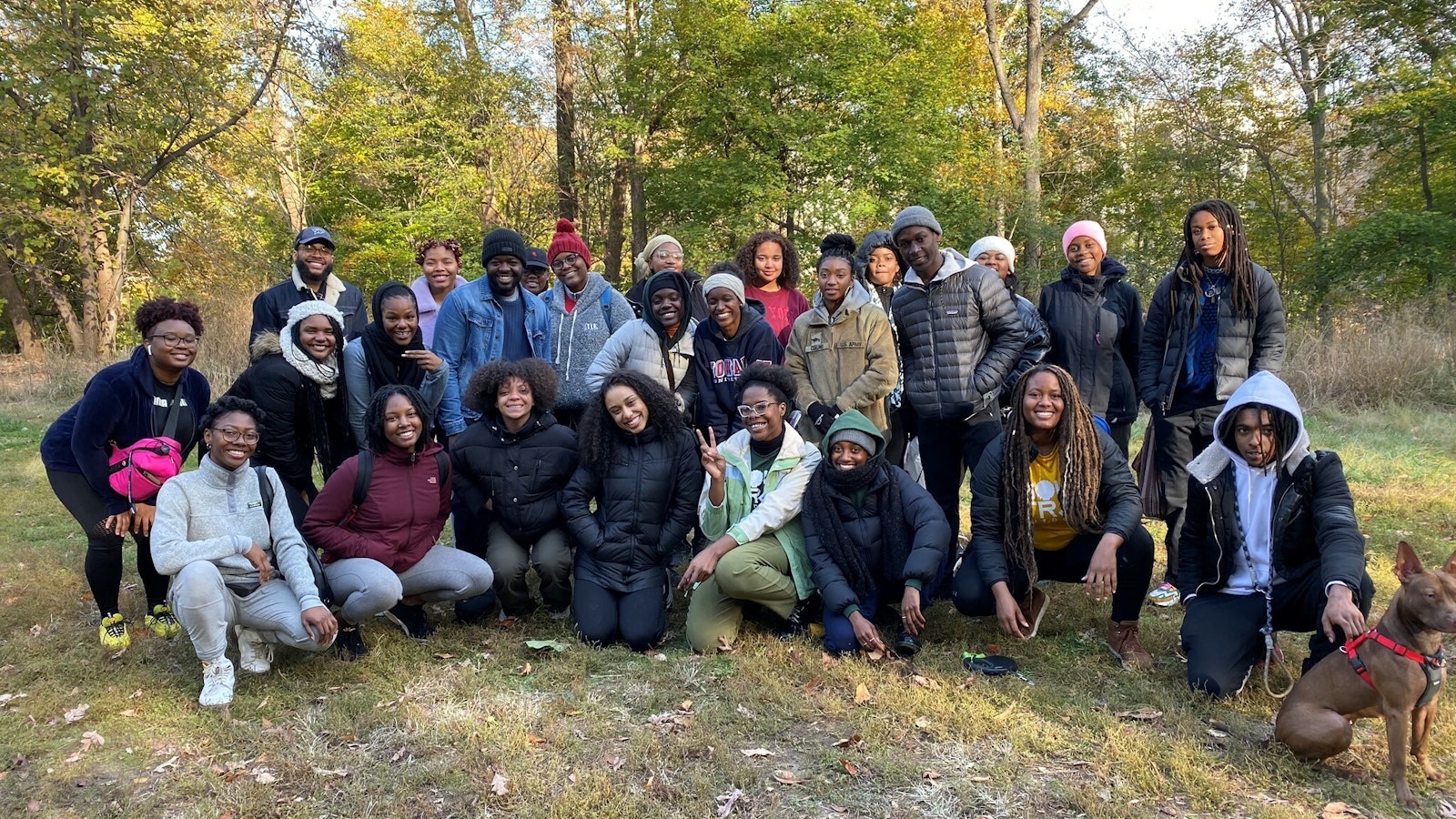
.
.
Oral history is important because it provides emotion, personality, and perspective that the written word cannot always account for, says Journee Harris.
Let that sink in for a moment, or rather, many moments.
Journee, a Greening Youth Foundation alumna who interned at Harriet Tubman National Historical Park, has so many insights on the importance and value of oral histories.
She is one of five interns that the National Park Foundation was excited to place with national parks in the summer of 2020, thanks to a partnership with Fund II Foundation on its internX program.
Journee personally defines oral history as “the collection and study of stories, moments, people, and places told through word of mouth,” and says oral histories not only play a significant role in her life, but also more broadly, they are a big part of Black communities around the world.
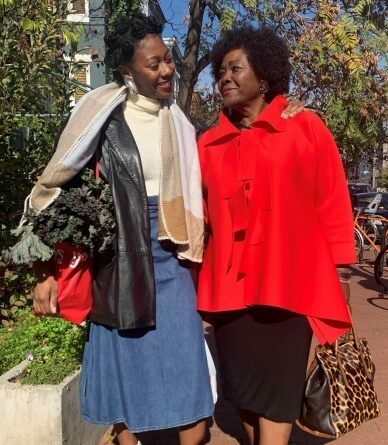
She recalls her grandmother always sharing stories to teach her about their family and engaging with listeners through her own radio show called Sunday Evenings with Reverend Sue. Journee followed in her grandmother’s footsteps and in 2020 released her second podcast, At Home the Podcast, exploring concepts of home through stories from people around the globe. During her internship at Harriet Tubman National Historical Park, Journee created the framework for an audio story time series about Harriet's personhood and selfless nature, beyond her fame and heroism.
Journee emphasizes, “I think it’s important for everyone to respect and engage with oral history because we are all historical figures and our stories matter.”
We couldn’t agree more with her.
We were honored to have the opportunity to chat with Journee about how national parks and her personal story intersect and what she's learned along the way. We hope you'll enjoy this glimpse into our conversation.
What do you love about national parks?
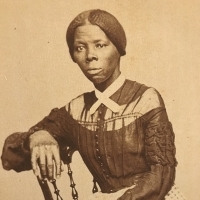
I love that the national parks memorialize places and people that we may overlook. It is my personal mission to take small memories, hidden moments, and celebrate their tenderness, their beauty and importance.
For example, I learned so much about Harriet Tubman through the national parks. I was inspired to learn about her personhood beyond her fame and heroism. I was able to celebrate her selfless nature and I love that the national parks inspire that kind of curiosity.
What is oral history and why is it important?
To me, oral history is the collection and study of stories, moments, people and places told through word of mouth.
Oral history is a big part of the global Black experience. From West Africa, Brazil, Jamaica, to the United States, Black people have always shared history through telling stories.
My Grandma told me stories when I was younger and they helped me learn about my family. My Grandma is an incredibly dynamic woman. She grew up in rural Georgia, came to DC after college and began working with the US Department of Agriculture where she traveled to every state in the nation working on multifamily housing. She continued to strive for greatness well into adulthood, earning a master's in gerontology, a Master of Divinity, becoming a reverend, an entrepreneur, a playwright, and a radio host for her show Sunday Evenings with Reverend Sue. I have followed in her footsteps in so many ways, from wanting to pursue higher education to hosting my own show, At Home the Podcast.
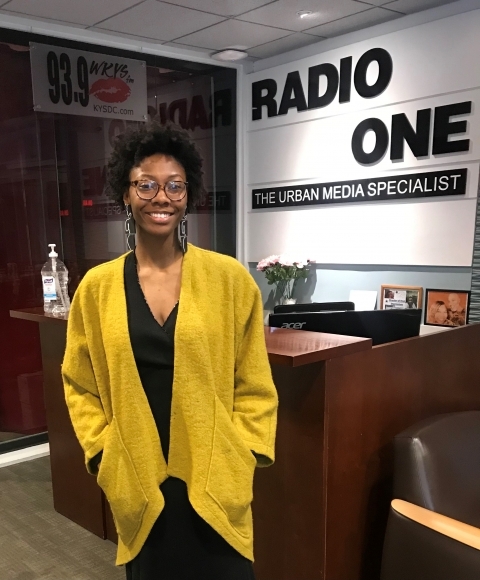
I began podcasting in 2017 and while I would casually tell stories of my own, I came to realize that by recording my stories I was creating oral history. One day, decades from now, someone will be able to listen to the stories I told and have a historical account of what the world was like from Journee’s unique perspective. I think it’s important for everyone to respect and engage with oral history because we are all historical figures and our stories matter.
I have matriculated through institutions that trust the written word over the spoken one, but oral history is important because it supplements history with emotion, personality, and perspective that the written word cannot always account for.
Personally, I find that I retain historical information better when it is shared with me through voice than through books. That's one of the many reasons that I love visiting national parks. Interpretive park rangers help interpret and share the stories of people like Harriet Tubman. It was an honor to serve as an interpretation intern and get creative about how we can continue to use oral history within the parks to share stories with visitors.
How are national parks and your story connected?
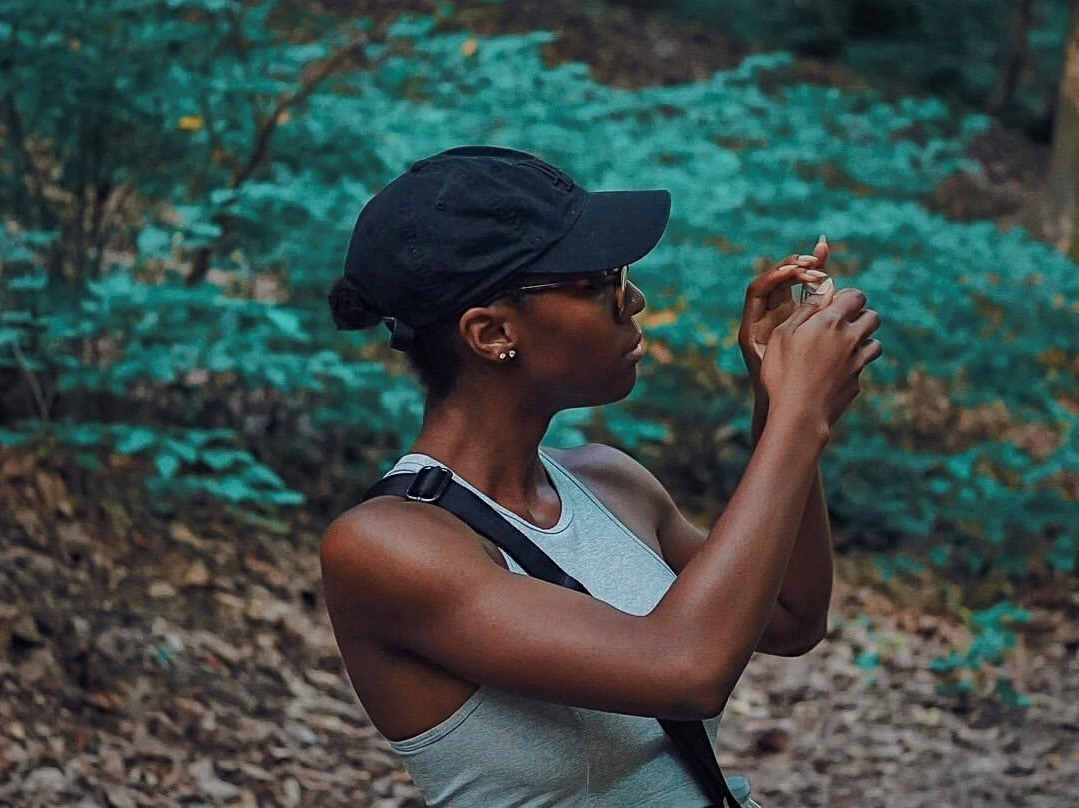
I would say the national parks have been a silent guardian throughout my life. I have always been surrounded by national parks. I was born in DC, home to over 30 national parks, and I was raised in Jacksonville, Florida, home to one of my favorite sites, the Kingsley Plantation, part of Timucuan Ecological & Historic Preserve.
Palm trees, orange blossoms, salamanders, alligators, foxes, and sharks were a natural part of my environment in Jacksonville. While I didn’t see sharks on a daily basis, I was never too far from wildlife. In Girl Scouts, we would camp on park grounds. In middle school, we took field trips to Cumberland Island and on the weekends my mother made a great effort to take me out to Timucuan or Amelia Island to be immersed in nature.
When I wasn’t in Florida, I was in DC with the rest of my family who taught me Black history that I wasn’t being taught in school. They passed down books by James Baldwin, Dr. Martin Luther King, Zora Neale Hurston, and I learned the richness of my culture and grew a desire to protect it.
While I was a student at Howard University, I was a team leader for Soul Trak Outdoors, founded by Tyrhee Moore, and we often hiked through Rock Creek Park, Great Falls, and even volunteered for some National Park Service clean up days.
Eventually I began looking into the national parks for post graduate opportunities. I learned that everything I was raised to cherish: nature, history, and culture could be tied back to the mission of the National Park Service.
What inspired you to apply for an internX position with the National Park Service?
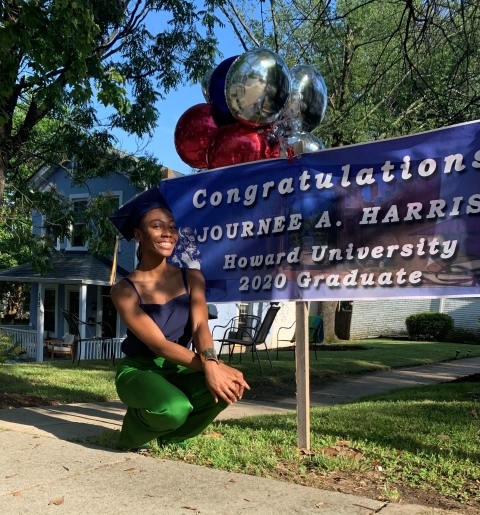
Not having a plan after graduating in the middle of the COVID-19 crisis inspired me to intern with Greening Youth Foundation for the National Park Service. It sounds a bit irresponsible, but the truth of the matter is many of my peers were losing internships and job offers during the pandemic.
My final semester in college ended abruptly and while I was excited to have graduated from college a year early, I was thrown into the “real world” prematurely. I was scared, I was not ready, and I needed direction on how to move forward after graduating from undergrad.
Then, Greening Youth Foundation and the internX program took a chance on me, a 20-year-old college graduate who majored in psychology. That was enough for me to take a chance on myself.
Plus, I knew I had the support of my family. Everyone in my family is extremely creative and we all support each other's endeavors. When I was younger and pursuing musical theatre, my grandma signed me up for theatre camps to strengthen my voice and acting. When I felt called to pursue psychology, my mom would help me study and quiz me on my knowledge. When I started my podcast, my dad created the theme music for my show. Having that kind of family has inspired me to pursue anything I feel called to do and I honor them in everything I do.
I had no idea at the time how an internship with the National Park Service was relevant to my career goals, but I was so grateful for the opportunity and so open to doing something outside of my comfort zone.
How did your internship evolve amidst the COVID-19 pandemic?
My internship was expected to be in person with the hope that "things would get better" with the pandemic and when things did not get better, we settled into the fact that this would be a completely remote internship.
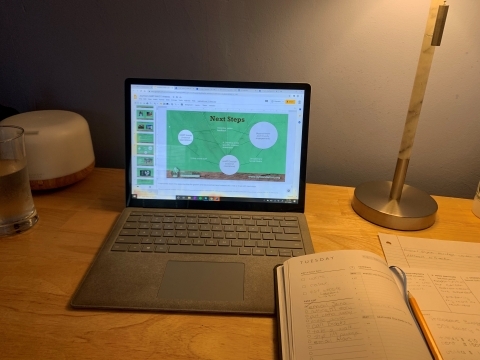
Instead of being an interpretive assistant intern on site, showing guests around and interviewing descendants of Harriet Tubman in person, I conducted intense research on Harriet Tubman and her time in Auburn from the comfort of my own home. I also created the framework for an audio story time series that would encourage socially distant learning and digital park engagement.
Greening Youth Foundation had plans for a conference in Atlanta, Georgia, where all the interns would meet each other and present the work they were each doing at their site, but it evolved into a virtual conference. The conference was the best virtual event I have attended since the pandemic started! We used an app to connect with each other, Zoom to present our work, and used food delivery service to simulate shared lunchtimes.
Overall, my internship became less about social interaction and more about how I can be creative with my skillset and sharpen my digital communication. My background in research allowed me to personalize my internship and learn more about Harriet Tubman. My experience in podcasting helped me set up the audio story time series for the park to share my research with the public. And Microsoft Teams, G-mail, Zoom, and Google docs were the tools that helped me organize and communicate through it all.
What are some of your takeaways from the internship experience?
The fact that there is room for any and everybody at the national parks!
I was once insecure about my background being ill fitted for the National Park Service, yet I was able to expand my interests during my internship. I learned how important it is to have places that memorialize history, culture, and nature and that realization led to my transition from psychology to urban planning as a career route. There are researchers, designers, psychologists, biologists, marketing managers, community planners, and more at the parks. Everyone plays a role and the overall goal is to serve people.
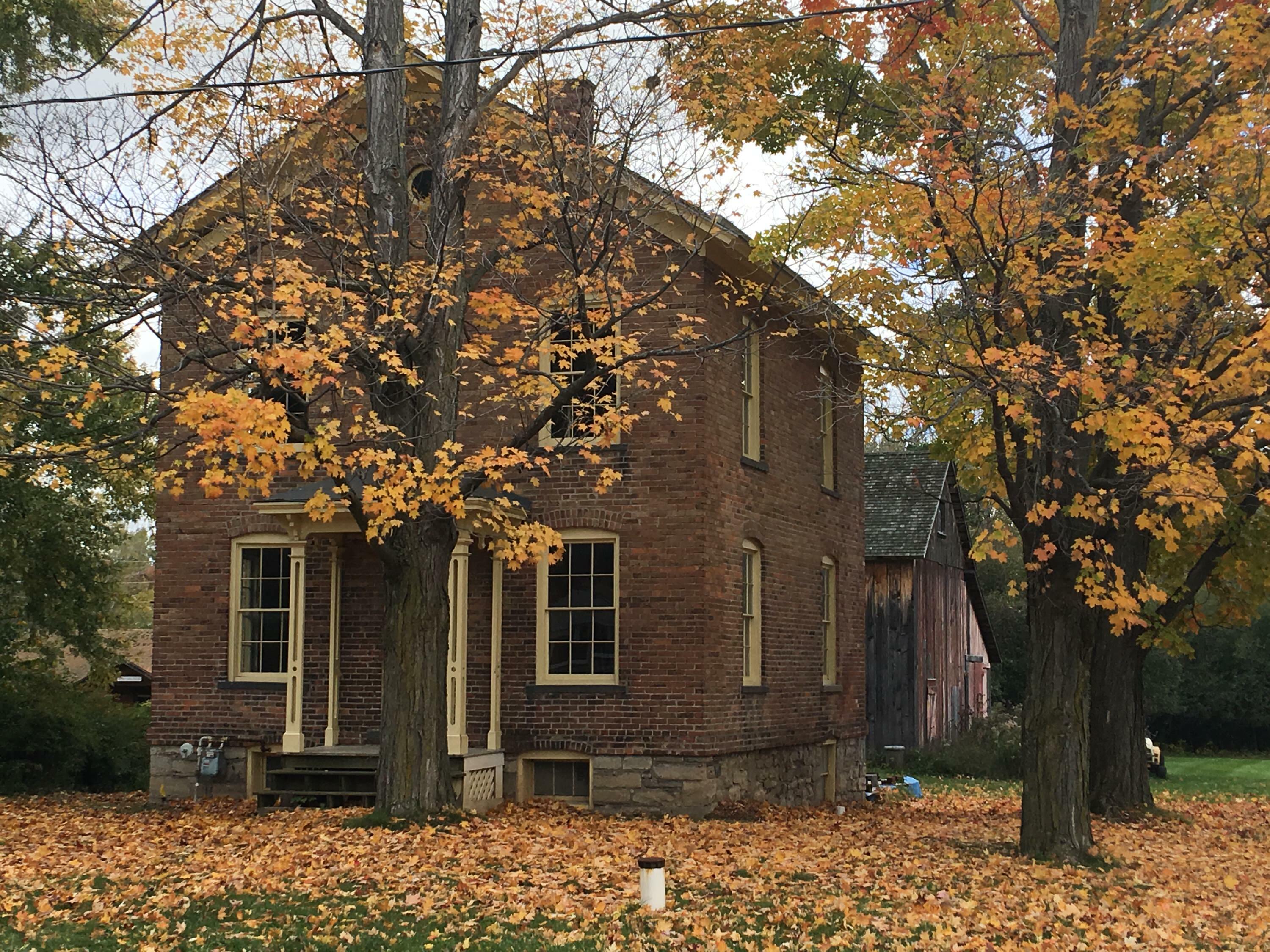
Throughout my internship, I learned how to apply business fundamentals such as project management, SWOT analysis, and project charters to my work at Harriet Tubman National Historical Park. The internX program fully prepared me to be a professional, and what I learned during my internship helped me to secure a full-time job at a cultural institution.
I am also taking my experience of working from home with me to my new job, where I also work remotely. This internship taught me the importance of diligence when working and the importance of setting up a comfortable workplace for myself.
What would you say to someone who is considering the internX program?
I would say that they should take that chance on themself and take a chance on the program. You never know who you will meet and you never know how your life will change. My life changed because I met people like Shatiba Bradley, Agai Jones, and Kimberly Szewczyck who helped develop my skillset with care and consideration. Through that development, I was able to make it through a rough time in life with confidence and guidance.
As Journee has shown us, the internX experience deepened her connection with national parks and Black heritage, further ignited her passion for oral history, and prepared her for future endeavors. We're grateful to Journee for sharing her personal story and we’d love to hear your thoughts on the power of oral histories in the comments below.
We invite you to learn more and support the National Park Foundation's efforts to preserve and share Black and African American history and culture through our national parks, including the National Park Foundation’s partnership with Harriet Tubman Home, Inc. to help establish Harriet Tubman National Historical Park in 2017.
Journee Harris is a writer, researcher, and urbanist based in Washington, DC. She is a Greening Youth Foundation alumna and served as the Interpretative Development Assistant Intern for Harriet Tubman National Historical Park in Auburn, New York in 2020. She currently serves as the We Design Program Coordinator for Design Museum Everywhere and the founder and host of At Home the Podcast. She graduated from Howard University earning her bachelor’s degree in Psychology with a focus on Community Development. From conducting academic research to co-producing two podcasts, Journee is experienced in storytelling across disciplines. She sees storytelling as a liberating tool that connects communities and preserves cultural heritage.